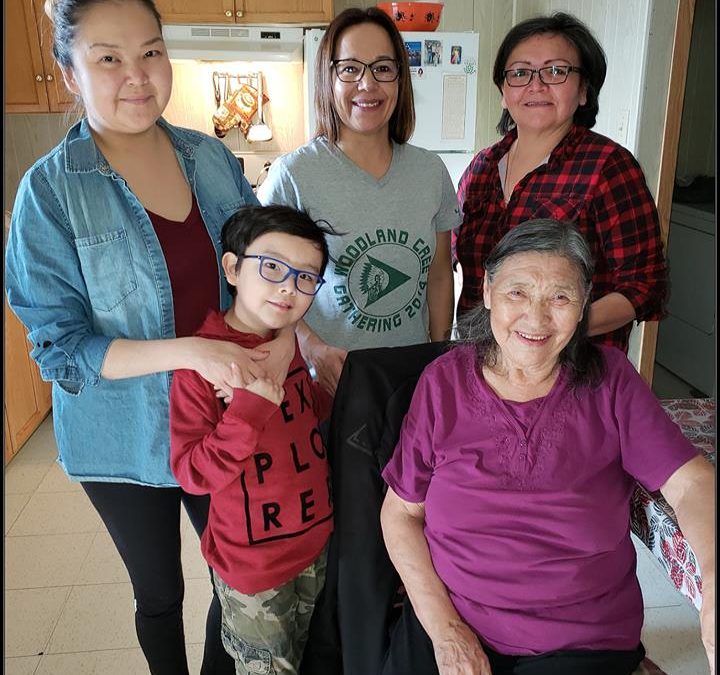Approximately 40 people in Saskatchewan are on a waiting list for a Type O blood kidney.
This number includes a 25-year-old woman originally from Wollaston Lake.
Ronelda Robillard was diagnosed with kidney disease in January 2017 and has been on dialysis ever since.
Last December, she was approved to be put on the organ recipient list and is currently waiting for a donor that has the same blood type and cell protein she has.
Robillard is a busy single mother with a seven-year-old son.
She is pursuing two degrees at the University of Saskatchewan – one in arts and science with a concentration in linguistics and the other a bachelor of commerce.
“It slowed down everything for me,” Robillard says. “I used to be on the go, now I barely get energy, but my naps are helping. I’m slowly completing my school and doing daily things with my son.”
Earlier this month, Robillard took her search for a kidney donor to social media with the help of Lac La Ronge Indian Band Chief Tammy Cook-Searson.
After Cook-Searson posted the story on her Facebook page, it was shared almost 800 times in less than a week.
“I was really happy,” she says. “I didn’t expect that of Tammy to stop by at my granny’s as I was visiting my family. That is where it all started. I was telling her about it and she said, ‘I want to share your story.’”
Chief Cook-Searson’s post reads, “I know that someone will read this and answer our prayers for this beautiful, hardworking, young mother, with a zest for life.”
Robillard is hoping for a living donor who can start the testing procedure to identify if the kidney would be a match.
The testing procedure consists of an assortment of examinations such as blood tests, blood pressure monitoring, ultrasound and CAT scan of the kidneys.
In Saskatchewan, approximately 40-50 per cent of kidney transplants are made possible by living donors.
Typically, the donor will be in hospital for two or three nights.
People have two kidneys, and when they chose to donate one, the remaining kidney will increase in size to compensate for the loss of the donated kidney.
If she finds a donor and the transplant is successful, Robillard says the first thing that she will do is go swimming, an activity she hasn’t been able to enjoy since she began dialysis.
She says she hopes that people take the time to consider being a donor.
“There is a lot of people who are waiting for an organ, not just a kidney. Put that sticker on your health card.”
A member of the Hatchet Lake First Nation and fluent in Dene, Robillard says she hopes to find a career in economic development and leadership once she has completed her education.
(LLRIB Chief Tammy Cook-Searson visits Ronelda Robillard and family in Wollaston Lake. Photo courtesy of Tammy Cook-Searson Facebook page.)
